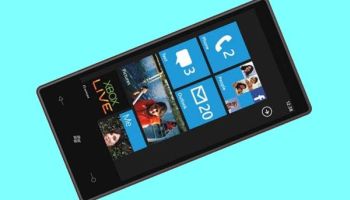Microsoft Blow As Smartphone Exec Quits

Microsoft is losing the executive who helped develop the Windows Phone 7 mobile operating system
Microsoft is losing another executive, after it was revealed that Charlie Kindel is leaving the company after 21 years.
As general manager for Windows Phone’s developer ecosystem, he played a key role in the development of Windows Phone, which represents Microsoft’s best hope for re-establishing a presence in the ultra-competitive smartphone market.
Kindel’s apparently heading to a startup, although an 8 August posting on his personal blog was light on details. “I’m not ready to disclose details about the new venture but I can say I will be staying in the Seattle area to build it,” he wrote. “It has to do with sports, advertising, mobile, social-networking, and, of course, the cloud.”
Uncertain Outlook
In an email to friends and colleagues, also reprinted in that posting, he added that Windows Phone is “the BEST product that Microsoft has ever built.”
Windows Phone has attracted some strong reviews from the tech community, but its marketplace viability remains somewhat in doubt. Research firm comScore is estimating Microsoft’s smartphone market-share declined from 7.5 percent to 5.8 percent for the three-month period ending in June. That included both Windows Phone and the company’s more antiquated Windows Mobile platform, which is being phased out.
 Microsoft hasn’t yet offered sales figures for Windows Phone, but outside estimates aren’t rosy.
Microsoft hasn’t yet offered sales figures for Windows Phone, but outside estimates aren’t rosy.
Recently, the Seattle Post-Intelligencer guessed Microsoft’s possible revenue from Windows Phone at less than $613 million (£375m). That figure came from subtracting Xbox 360-related revenue – some $8.103 billion (£4.9bn) – from that of its overall Entertainment and Devices Division, leaving $613 million split between Windows Phone and a variety of much smaller projects such as Zune and Surface.
Microsoft hopes its upcoming “Mango” update, due to final release sometime this fall, will spur greater consumer adoption. Samsung, HTC, LG Electronics and Nokia have all committed to building new Windows Phone devices preloaded with Mango, along with Acer and ZTE. Some 500 new elements to the update include expanded functionality for the Xbox Live and Office hubs, new multitasking abilities, and Bing deeply baked into the user interface.
Intense Competition
Whether or not consumers gravitate to Mango, though, Windows Phone faces substantial competition in the months ahead from Apple’s iPhone and the growing ranks of Google Android devices. Apple is widely expected to release its next-generation “iPhone 5” in either September or October.
Microsoft is also betting that its recent partnership with Nokia, wherein the Finnish phone maker agreed to adopt Windows Phone as its mobile software platform going forward, will also reap market-share dividends.
However, competitive pressures and abandonment of its homegrown Symbian OS has led to Nokia bleeding market share at a startling rate. And no matter what its share, Nokia remains unlikely to help Microsoft much in the US smartphone market, where it retains a negligible presence.
Kindel will leave Microsoft 2 September.